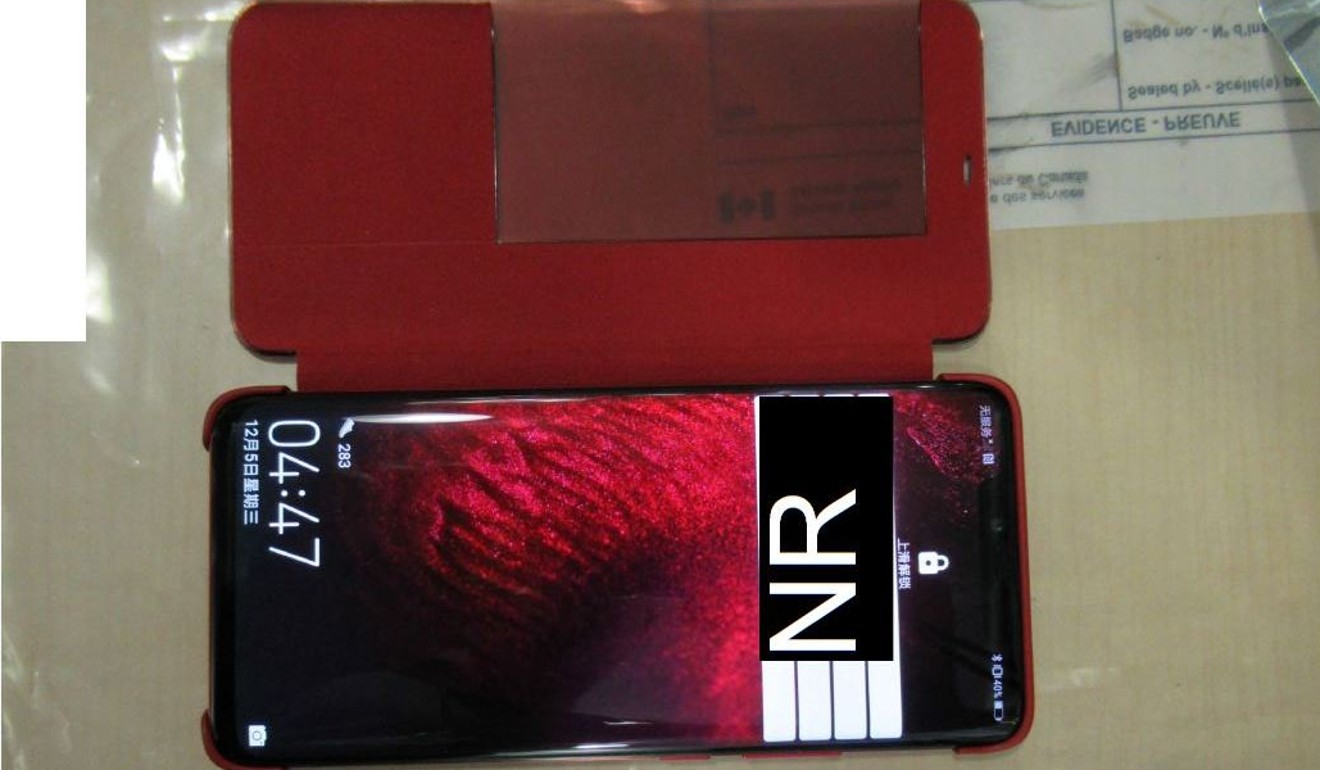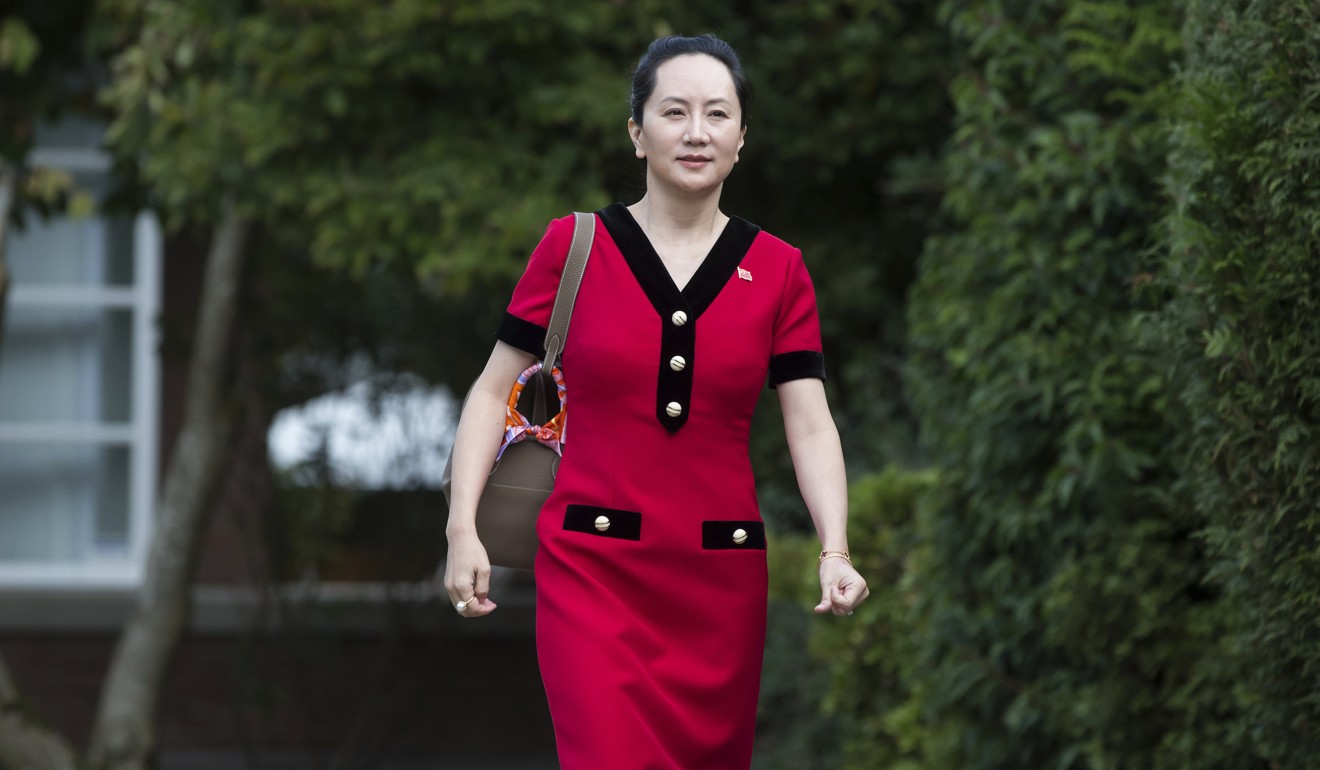
‘Error but not a sham’: Canada border officers gave Meng Wanzhou’s passwords to police by mistake, government lawyer claims
- Meng’s legal team previously said the transfer of the passwords to her electronic devices showed that her rights had been abused
- But the transfer is depicted as an error in an email – dated Monday – that was disclosed by the crown lawyers on Tuesday
Lawyers for Canada’s government said in court on Tuesday that border officers handed over the passwords of Huawei executive Meng Wanzhou’s electronic devices to police by mistake, but that steps were taken to try to remedy the supposed error.
Meng’s lawyers have previously depicted the transfer of the phone and computer passwords as evidence of a “covert criminal investigation” by Canada Border Services Agency (CBSA) officers, conducted on behalf of the Royal Canadian Mounted Police (RCMP) and the US Federal Bureau of Investigation (FBI).
Her lawyers said a court order that Meng be “immediately” arrested was defied so that the search of Meng at Vancouver’s airport on December 1 could be conducted to gather evidence – including the electronics and passwords – for the US criminal case against her. The US wants Meng extradited to face trial for alleged bank fraud related to Huawei’s business dealings in Iran.
“This was not a deliberate action but an error,” said Canadian government lawyer Diba Majzub, acting on behalf of the US, at a hearing on evidence disclosure for Meng’s extradition case in the British Columbia Supreme Court in Vancouver.
Meng’s legal team has said the sharing of the passwords showed that her rights had been abused. But Majzub said this was only a mistake, and was described as such in an email written by a CBSA officer that Majzub provided to the court.
He said that the CBSA took the appropriate step of asking for the passwords to be returned, but that the RCMP had also responded correctly when it said this was not possible – because by that time, the passwords had already been entered into the court record of Meng’s case.
“The fact that there is an error in the process [does not substantiate] an air of reality that the process was a sham,” said Majzub.
But Justice Heather Holmes asked whether this explanation was simply an after-the-fact effort to remedy “missteps” made on December 1.
The email disclosed on Tuesday was from CBSA official Nicole Goodman to John Gibb-Carsley, another of the crown lawyers arguing the case for Meng's extradition on behalf of the US.
The email, dated Monday, says: “I became aware the passcodes for the phone were provided in error to the RCMP at the time of the transfer of Ms Meng and her belongings … I advised the RCMP the passcodes should not have been provided by CBSA as the passcodes were CBSA information obtained during the CBSA examination, and the passcodes could not be used to access the devices nor shared with a third party (ie: other law enforcement agency).”

Meng is currently facing an eight-day hearing on evidence disclosure as part of her battle to avoid extradition to the US. The hearing is scheduled to last until Friday; Meng’s formal extradition hearing is scheduled to begin in January and last until October or November 2020.
Meng’s lawyers spent last week arguing for more evidence to be disclosed by Canadian authorities, in the hope that it will bolster their claims that Meng’s rights were abused when she was searched and questioned by border officers at the airport on December 1, without being told she was about to be arrested by police.
On Tuesday, Holmes repeatedly quizzed Majzub on the need for Meng's border examination, when the CBSA officers knew Meng was going to be arrested on the US extradition warrant.
“How would officers embarking on an examination know that at the end of it Ms Meng … would remain in Canada in a capacity that would allow the execution of the warrant?” Holmes asked.
Majzub said, “It wasn’t a realistic possibility to have told Ms Meng she was immediately inadmissible to Canada and sent back [to Hong Kong].” Therefore, she had to be screened.
He added: “None of it had been predetermined, and it couldn’t be determined until there was an examination.”
Regarding the seizure of Meng’s electronic devices, Majzub called this “normal practice”. Although it was known that the FBI wanted the phones, “there is no evidence before the court that the CBSA wasn’t interested in the phones for their own purposes”, he said.

Among the devices seized from Meng were an Apple iPhone 7 Plus, an iPad, a MacBook computer, a Huawei Mate 20 Pro phone and a memory stick.
“Securing the phones from the outset was lawful and reasonable,” Majzub said.
Holmes asked that if there was evidence that the CBSA had no interest in the phones, “would that be a problem” for the crown lawyers’ case. “There’s no evidence that they [the CBSA officers] weren’t doing it for their purposes,” Majzub responded.
“They’re entitled to go as far as they need” to determine Meng’s admissibility to Canada, he said.
A foreign national had no right to enter Canada, he said; they must instead prove that they are not inadmissible.
“Ms Meng’s charter rights were never [breached] because she was always subject to these examination powers,” Majzub added.
“Charter rights were never engaged,” he said, referring to the Canadian Charter of Rights and Freedoms, which guarantees the civil rights of all people in Canada, regardless of citizenship.
But Holmes interjected and questioned the crown lawyers frequently, in a way she had not done with Meng’s lawyers last week as they laid out their case.

The hearing was attended by China’s Consul-General Tong Xiaoling, who greeted Meng warmly after the hearing. Tong declined to comment afterwards beyond saying she had been following the case closely.
Meng is Huawei’s chief financial officer and the daughter of Huawei founder Ren Zhengfei, and was arrested on a stopover on her way from Hong Kong to Mexico.
Once a Canadian permanent resident, Meng currently free on bail, living in a C$13 million (US$9.8 million) home that is one of two properties she owns in Vancouver.
The hearing was adjourned until Wednesday morning.

